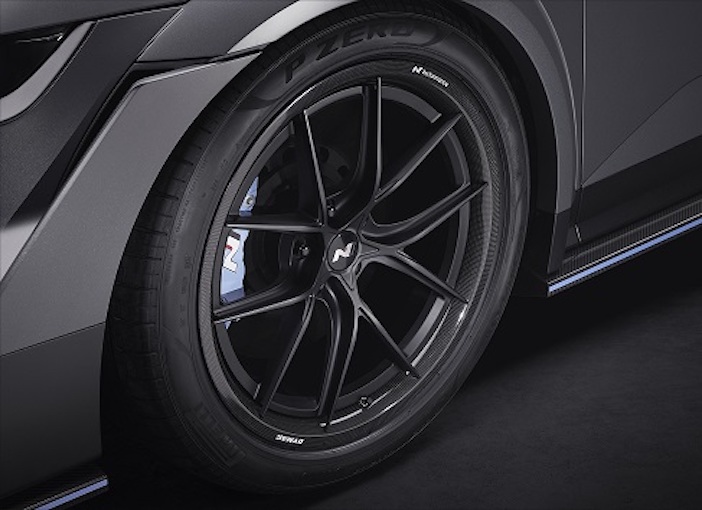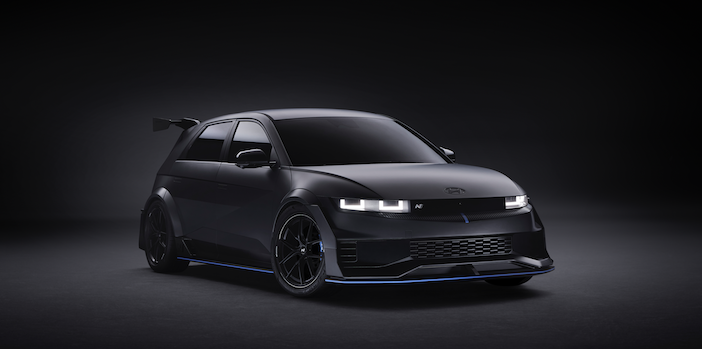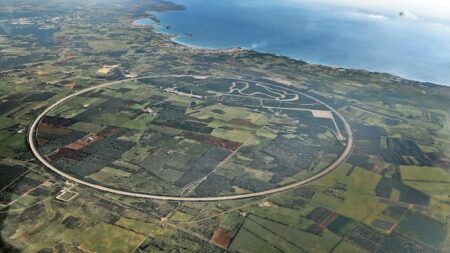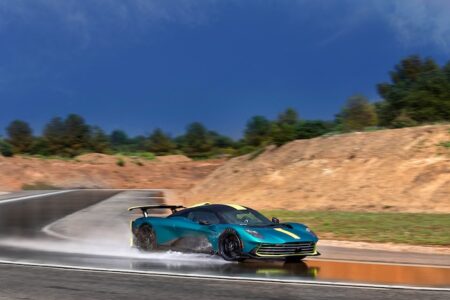Dymag, a manufacturer of lightweight wheels for the automotive industry, has collaborated with composites material specialist Hankuk Carbon, to develop an all-new carbon hybrid wheel for the Hyundai Ioniq 5 N NPX1 concept car. The NPX1 is a real-world technology demonstrator, previewing a range of advanced N Performance Parts – including the carbon hybrid wheels – which will be further developed for production in preparation for sales later this year. Hyundai also plans to expand the enhanced product line-up for all N brand models.
Dymag’s proprietary carbon hybrid wheel features a composite outer rim, made from carbon fibre, with a precision-machined forged metallic centrepiece. In addition to the reduced unsprung mass of the lightweight wheel, the carbon hybrid wheel technology also reduces rolling inertia and offers improved stiffness and strength.
For the NPX1 wheel, bespoke designed for the car and developed over the past 12 months, Dymag has created a 21-inch design with a five-spoke forged aluminium centrepiece painted satin black. Combined with the carbon fibre outer rim, Dymag claims the N Performance wheel weighs under 10kg, which is 7kg less than some traditional cast alloy wheels.

Dymag says is also in the advanced stages of developing wheels for multiple car makers, with further original equipment supply agreements set to be announced soon.
Christopher Shelley, chairman of Dymag, stated that its carbon hybrid wheels involve only a low capital expenditure for car makers due to the company’s patented technology and lean production methods.
In 2004 Dymag became the first company to commercialise carbon hybrid automotive wheels. In addition to lower unsprung mass and inertia, further claimed benefits include reduced gyroscopic force, improving steering feel and handling, and strength and durability.
Dymag claims its carbon hybrid wheels also enhance safety due to their ability to bend and spring back in the event of an unusually high load or sharp impact – in contrast to one-piece aluminium wheels, which can permanently deform or shatter. Dymag also says that carbon fibre’s inherent harmonic characteristics can also reduce Noise Vehicle Harshness (NVH).





